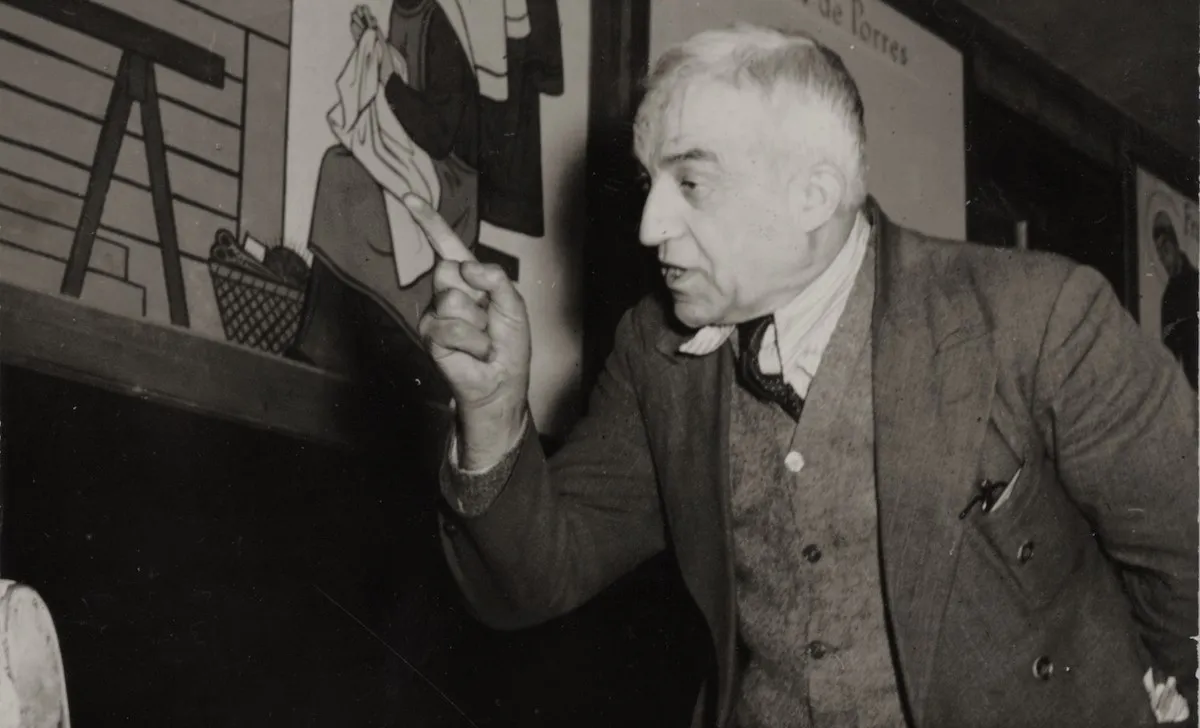A warm breeze wafted through the window. The thin cloths that passed for curtains flapped back and forth. The drying herbs that hung from the ceiling swayed.
Buonadonna, who had been lost in prayer while sitting at the small wooden table, looked up. Although it was only 9 in the morning, the breeze hinted at yet another hot Tuscan summer day.
She was glad that she had begun her baking early in the morning.
She looked in the oven. The breads were ready to come out. She carefully removed the loaves, transferring them to the shelf near the window to cool.
Six loaves.
Plus the 12 she had baked earlier.
She hoped they would be enough to distribute to the poor families she planned to visit that day.
As she placed the the last loaf on the table a movement on the road from Poggibonzi drew her attention. She squinted, trying to make out who it was.
The traveler came closer. She saw he was thin and dressed in ragged clothes.with a bag slung over his shoulder. She smiled. and set aside one of the cooled loaves from earlier, and filled a wooden goblet with well water. She then went to the back door.
"Luchesio," she called.
Luchesio, her husband, was busy digging in the field behind the house. He looked up.
"Eh?"
"A visitor is coming," she said.
Luchesio hoisted the shovel to his shoulder and hurried back the the house. He leaned the shovel against the porch railing, and washed his face and hand in a basin filled with rain water. He then entered the house and joined Buonadonna at the front door.
The stranger was now quite near. Luchesio called out, "Ciao."
The stranger smiled broadly, raise his hand in greeting, and replied, "Benedicite."
The stranger paused in front of the house.
"I am looking for Luchesio and Buonadonna Modestini. I was told they lived out this way."
"I am Luchesio. You are welcome friend."
"Thank you. My name is Francis."
Luchesio and Buonadonna looked at each other in surprise.
"Are you Francis di Bernardoni of Assisi?" Luchesio asked.
"I have been called that name," Francis responded.
"Come in, come in," Luchesio said excitedly.
Francis entered the house. Luchesio pointed to the chair at the small table. Francis sat, and Buondonna placed the loaf and the goblet of water before him. Then she and Luchesio pulled up chairs and sat. .
Francis picked up the goblet.
"Thank you. The day is already hot."
He drank, then nodded in gratitude.
"We have met before," Luchesio said. "In your father's shop many years ago."
"Ah. I no longer work there," Francis said.
"So we have heard," Luchesio said.
"And I have heard much about you," Francis said.
Buonadonna and Luchesio both looked puzzled.
"You do much for the poor of your area," Francis explained.
Luchesio shook his head. "We don't do enough. I have many sins for which to atone."
"We both do," Buonadonna added.
"I spent many years serving greed," Luchesio went on. "I was a merchant who sought only money. I charged the most I could. I cheated so many people."
"And we spent the money on luxuries," Buonadonna added. "We had a magnificent mansion with many servants."
Francis looked around the room. It was small, and furnished simply. And then he looked at Luchesio and Buonadonna. Luchesio was wearing a smock with a patch on it. One of the legs of his pants had a smudge of dirt on it. And Buonadonna was wearing a simple dress that had obviously been washed many times. Her hands were worn, not manicured and smooth like those of the wealthy women Francis had known in his youth.
"But then I realized how wrong our life was," Luchesio continued. "I, we, turned our lives to serving the Lord."
"I took longer," Buonadonna admitted. "I liked all that came with wealth. The clothes. The servants. The respect of everyone we met. At first I was angry. I thought he had gone crazy. But then I too saw it was all wrong."
"We sold it all," Luchesio said. "Except for this small farm. And we began giving away our wealth."
"That is what I heard," Francis said. "The people in Poggibonzi told me all about you."
"But it is not enough," Luchesio continued. "My sins are many. We want to dedicate our lives even more to serving the Lord."
"Some people suggested that we separate, and Luchesio become a priest or a monk, and I become a religious sister," Buonadonna said. "While those would be noble things to do, we want to remain together. We want to continue to serve the poor of our area, but together."
Luchesio reached over and took her hand.
Francis smiled.
"Such love is a blessing. And interestingly, this has been something on my mind for a time. Last night when I spoke in Poggibonzi several couples approached me asking if they should separate and seek the monastery and the convent. It reminded me of previous times people have asked me that. I tell them that while being a priest or a monk or a religious sister is good, and there is a need for more such vocations, we need good men and women to remain in the world to live out the vocation of marriage."
"But it is hard living in the world,without some sort of guide," Luchesio said. "Your brothers have a rule to guide them."
"As do the good women who follow Clare," Francis observed.
"That is good," Buonadonna said. "But what about us in the world who want to grow and serve the Lord? Who want to serve as they work in their professions. The married and unmarried?"
Francis smiled.
"This is what you want?"
"Yes," Luchesio and Buonadonna exclaimed together.
"A rule," Francis said. "For lay people. An order in the world. Would you be willing to join such and order?"
"Yes," they replied together.
"Then it shall be so,"Francis said. "Do you have any parchment?"
Luchesio went over to a cupboard and came back with several sheets, a quill, and ink.
In the next hour, with their help, Francis wrote a brief rule for an order of lay people. When he had finished it, he read it aloud.
After reading it, he asked, "Do you pledge to live by this?"
They nodded.
"So what do we call this order? Hmm. You both are intent on penance; what about the Penitentials?
"That would put the focus on the people, not on penance," Luchesio observed.
"Ah, good point."
"What about the Order of Penance," Buonadonna suggested.
"Just the name," Francis said, smiling.
He wrote the name across the top of the parchment with the rule.
He then stood, and gestured for them to stand with him. He placed his hands on their heads.
"Luchesio and Buonadonna, do you pledge to live by this rule?"
"Yes," they replied.
"Then may the Lord bless you, and the Holy Spirit guide you."
"Amen," they replied.
"You are the first members of the Order of Penance," Francis proclaimed, smiling broadly.
Luchesio and Buonadonna hugged each other, then they hugged Francis. All three were smiling, and crying with joy.
"Please do me a favor," Francis said. "Make a copy of this rule. Make several copies. When I return this way I will take one of them to show Cardinal Ugolino to get his opinion. Knowing him and the Holy Father there will be changes suggested. But this is a start. And please, share it with like-minded people and invite them to join."
"We will do that," Luchesio said.
"We already know some people who would join," Buonadonna added.
"Good," Francis said. "And now I must be on my way. I have to get to Umbria. I've heard a report that the good people of Gubbio are having a disagreement with Brother Wolf."
Buonadonna gave him a loaf of bread and a gourd filled with well water. He walked out the door. Luchesio and Buonadonna stood together just outside the door.
"Be safe, Francis," Luchesio said.
"Return soon," Buonadonna added.
Francis smiled and bowed, then began walking down the road.
"I bet he eats little of that bread," Luchesio said. "He will meet a beggar, or some birds."
"That's why I hid a second loaf in his bag," Buonadonna said.
Luchesio laughed and hugged her.
"I married a good woman," he declared.
*****
This is, of course, a fictionalized version of how the Order of Poverty - later known as the Third Order of St. Francis, and now as the Secular Franciscan Order - began. Blessed Luchesio, who was a repentant greedy merchant, and Buonadonna are indeed credited with being the first members, living under a simple version of the Rule. That rule was in effect for several years, and then was revised by Cardinal Ugolino to be more formal and legal in nature, and was approved by Pope Honorius III in 1221, the year Secular Franciscans celebrate as the year their order was officially founded.
Pax et bonum

















